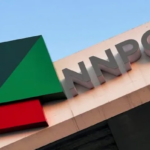“I didn’t want to tell you but Daddy was acting like somebody who has stroke,” she says. After a rushed first aid, her father was at rest, waiting to “see what happens tomorrow.”
It was, in fact, a stroke. Her father, despite a night of fitful sleep and bouts of vomiting, couldn’t walk unaided to the bathroom. By morning, the active 60-year-old was carried into a neighbour’s car and driven to the hospital.
The hospital didn’t want to admit him; admission alone required the family to pay N35,000 one off. Instead the doctor ordered a bed rest, intravenous fluid and a concoction of injections and a slew of drugs.
“They said we should bring him back in two weeks,” says Theresa’s mother.
There started the nightmare: the wait for their father to arise from a sleep induced by both drug and stroke, decision to support a head of family who until then was a breadwinner and worry about whether he’d ever return to normal.
“Having lived in the UK and seen attention paid to stroke patients and comparing it to what happens in our environment, you know that there’s just no understanding of stroke management,” says Dr Olu Obaro, 30 years a consultant radiologist in the UK and now chief executive officer of the Stephen James Stroke Centre of Excellence, starting up in Nigeria this year.
After his father-in-law had a stroke, the family rallied for the best hospitals in Nigeria.
“We had to bring in things from the UK, we couldn’t find any local suitable physiotherapist, of course there was no occupational therapist, there was just no coordinated attempt at management,” he said.
“We had to direct things from the UK. No, for the country we are supposed to be, this ought not to be. So we thought we would come and set up a centre.
“Our goal, and we don’t think it is too ambitious, is in the next five years, there should be one centre of excellence in each geopolitical zone, as a starting point. Nigerians will be 200 million by 2020.
“If now we have 160,000 cases of stroke every year, imagine what that will be, and our population is galloping. Unless we make strategic plans to deal with this problem, it will only get bigger and we will get overwhelmed by it,” he added.
The centre hopes to stand in the gap of an impending epidemic of vascular diseases that includes stroke, which Dr Tony Rudd, national clinical director for stroke at England’s National Health Service, says “is going to get worse if there’s no coordinated policy to prevent it.”
Up to 62% of strokes result from a cerebral infarction, when blockages in blood vessels prevent blood from reaching pits they normally get to. In other cases, strokes can come from a cerebral haemorrhage, a bled into the brain.
Experts estimate up to seven strokes occur every hour in Nigeria. Hypertension is a principal cause in 83% of the cases. Obesity is implicated in 32% of them, and increases risk of stroke by 22%. In 24% of strokes, diabetes is a factor.
“If the blood pressure of a population can be controlled, we can prevent 50% of strokes,” says Dr Rudd. The stroke care he manages in England costs £7 billion a year. “What makes a difference is basic care.”
The care Theresa’s father has had is all he will have, the family fears, unless they can cough up money to pay for a physiotherapy a possible disability will require or pray hard enough that no permanent disability results.
Managing him so far meant his doctors considered each stage of illness as a symptom to be treated, not a whole condition that required coordinated care.
A dedicated stroke centre also does provide rapid diagnosis that can help people suspected to have had “minor” strokes, says Dr Obaro.
“There are some little signs that can point to possible stroke, which manifest as transient ischemic attack—short-term, little, fainting attack. You lose momentary consciousness and then you regain it. The underlying causes can be treated and can prevent you from having a major stroke.”
Here’s a possible coordinated system: Early diagnosis could have picked up the stroke, and a hyper acute stroke unit which can house patients a maximum 72 hours for treatment. Next, he is transferred to a stroke ward where his recovery is closely observed. Rehabilitation follow, sometimes on outpatient basis.
The target is “to allow maximum recovery and at best restoration of health to enable individuals achieve optimal wellbeing and enjoy the quality of life after stroke,” says Obaro.
That’s the concern for Theresa’s brother. Moments throughout any day, the messages asking about their father have become predictable. “Is he awake yet? Does he eat? Does he talk? Can he walk? Is he awake?”
She replies: “Daddy still couldn’t walk, he’s not stable. Always falling over to the left.”
It is degrading, says Dr Obaro. “An adult used to cleaning a child’s urine and faeces suddenly now becomes the one to be cleaned up. It takes a lot of effort and commitment. The problem is so big that we cannot afford not to do anything about it. Stroke care is expensive, but what is more expensive than stroke is the cost of doing nothing to contain it.”
 Join Daily Trust WhatsApp Community For Quick Access To News and Happenings Around You.
Join Daily Trust WhatsApp Community For Quick Access To News and Happenings Around You.



